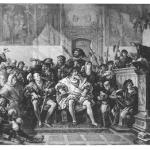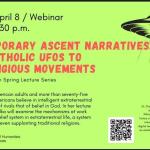Vatican City, Jan 6, 2016 / 04:29 am (CNA/EWTN News).- In a restless age when humanity fails to find the answer to its continuous searching, the Magi who go out looking for Christ only to find him in a humble stable in Bethlehem are a key example of where to turn, Pope Francis said. “Like the Magi, countless people, in our own day, have a restless heart which continues to seek without finding sure answers,” the Pope said in his Jan. 6 homily for the Feast of the Epiphany. “They too are looking for a star to show them the path to Bethlehem.” However, out of the many stars in the sky, the Magi “followed a new and different star, which for them shone all the more brightly.” After gazing at and reading the stars for centuries, the Magi had finally found the light they were looking for, Francis said, noting that the star “changed them. It made them leave their daily concerns behind and set out immediately on a journey.” Pope's gen. audience on Feast of #Epiphany was full! https://t.co/JYLLtssarB Credit: Alexey Gotovskiy/CNA @go_alexey pic.twitter.com/a4Si60nAFZ — Catholic News Agency (@cnalive) January 6, 2016 “They listened to a voice deep within, which led them to follow that light. The star guided them, until they found the King of the Jews in a humble dwelling in Bethlehem.” He said that the Magi, often referred to as the “Three Wise Men” or the “Three Kings” who brought Jesus gifts of gold, frankincense and myrrh, are “a living witness” to the fact that seeds of the truth can be found everywhere. These Magi represent every man and woman throughout the world who are welcomed into God’s house, the Pope said, noting that before Jesus, “all divisions of race, language and culture disappear: in that Child, all humanity discovers its unity.” The Church, then, “has the task of seeing and showing ever more clearly the desire for God which is present in the heart of every man and woman,” Francis continued. “This is the service of the Church: with the light, to reflect and to show the desire for God that each person carries inside of themselves.” Pointing the day's first reading from Isaiah when the prophet tells Israel “Arise, shine; for your light has come, and the glory of the Lord has risen upon you,” the Pope said that these words are a commission “to go forth, to leave behind all that keeps us self-enclosed, to go out from ourselves and to recognize the splendor of the light which illumines our lives.” Francis explained that the light Isaiah is referring to “is the glory of the Lord,” and cautioned that the Church “cannot illude herself into thinking that she shines with her own light...Christ is the true light shining in the darkness.” “To the extent that the Church remains anchored in him, to the extent that she lets herself be illumined by him, she is able to bring light into the lives of individuals and peoples,” the Pope said. He noted that this light is necessary if the Church is to fulfill her vocation of proclaiming the Gospel throughout the world. For the Church, being a missionary “does not mean to proselytize,” but rather “to give expression to her very nature, which is to receive God’s light and then to reflect it.” “This is her service. There is no other way. Mission is her vocation; to reflect the light of God and to serve,” he affirmed. Pope Francis then encouraged attendees to ask themselves the same question as the Magi in the Gospel: “Where is the child who has been born the King of the Jews? For we observed his star at its rising, and have come to pay him homage.” He highlighted the importance, particularly in our age, of seeking the signs God is giving and of realizing the great effort that is needed to interpret these signs and therefore understand the will of God. We are challenged, he said, “to go to Bethlehem, to find the Child and his Mother. Let us follow the light which God offers us!” Once we have found the Lord, “let us worship him with all our heart, and present him with our gifts: our freedom, our understanding and our love. Let us recognize that true wisdom lies concealed in the face of this Child.” Francis closed his homily by emphasizing that the entire life of the Church is summed up in the “simplicity” of Bethlehem. It is there, he said, where we find “the wellspring of that light which draws to itself every individual and guides the journey of the peoples along the path of peace.” After Mass Pope Francis led pilgrims in praying the traditional Angelus prayer, telling them that the experience of the Magi “impels us not to accept mediocrity, not to ‘just get along,’ but to search for the meaning of things, to passionately scrutinize the great mystery of life.” “They teach us not to be scandalized by littleness and poverty, but to recognize the majesty of humility and to know how to kneel before it.” Once he concluded the prayer, Francis extended his greeting to Eastern Christians, Catholic and Orthodox, many of whom celebrate Christmas on Jan. 7, the day after the Epiphany. He then noted that Jan. 6 coincides the World Day of Missionary Childhood, saying the day celebrates children, “who with their prayer and sacrifice, help their most needy peers to become missionaries and witnesses of fraternity and coexistence.” Camels at the Vatican today for the general audience! Credit: Alexey Gotovskiy/CNA @go_alexey #Epiphany #DiaDeReyes pic.twitter.com/P14iiVd1nc — Catholic News Agency (@cnalive) January 6, 2016 Read more


















